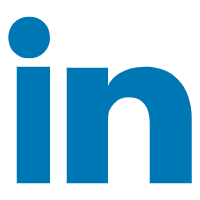The Application of Inverters in Distributed Solar Systems
Inverters have become increasingly favored in distributed solar projects due to their high efficiency and flexibility. As the demand for renewable energy solutions grows, inverters play a crucial role in converting the direct current (DC) generated by solar panels into alternating current (AC), which can be used by household appliances or fed into the grid.
Key Advantages of Inverters in Distributed Solar Systems
1. High Efficiency: Modern inverters boast conversion efficiencies of over 95%, ensuring minimal energy loss during the DC-to-AC conversion process. This maximizes the usable electricity generated by solar panels.
2. Flexibility and Scalability: Inverters support modular designs, allowing systems to be easily expanded as energy needs grow. This makes them ideal for residential, commercial, and industrial applications.
3. Grid Integration: Advanced inverters enable seamless integration with the power grid, supporting functions like voltage regulation, frequency adjustment, and anti-islanding protection.
4. Smart Monitoring and Control: Many inverters now come with IoT-enabled monitoring systems, providing real-time data on energy production and system performance. This helps users optimize energy usage and detect faults early.
Applications in Distributed Solar Projects
- Residential Solar Systems: Homeowners benefit from compact, efficient inverters that ensure reliable power supply while reducing electricity bills.
- Commercial and Industrial Installations: Businesses use inverters to lower operational costs and enhance energy independence.
- Microgrids and Off-Grid Systems: Inverters enable stable power supply in remote areas where grid access is limited.
Future Trends
With advancements in technology, inverters are expected to become even more efficient, intelligent, and cost-effective. Innovations such as hybrid inverters (supporting battery storage) and AI-driven energy management systems will further enhance their role in distributed solar applications.
In conclusion, inverters are a cornerstone of modern distributed solar systems, offering efficiency, flexibility, and smart functionality. As solar energy adoption continues to rise, inverters will remain essential in driving the transition to sustainable power solutions.







